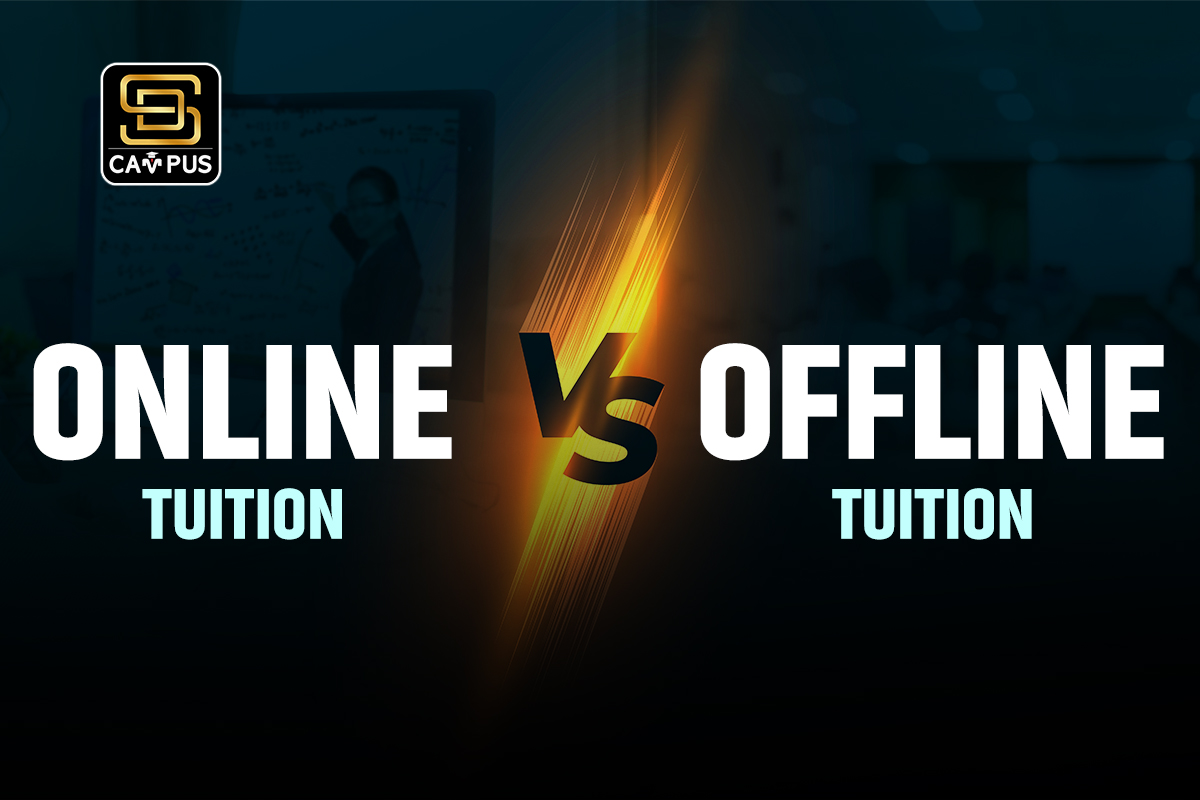Online vs offline tuition is an important question for many students and parents. Online tuition means learning through the internet from home, while offline tuition involves attending a classroom to study. Online tuition is flexible because you can learn from anywhere. In contrast, offline tuition provides face-to-face interaction with teachers, offering a more structured environment. Some students appreciate the freedom of online learning, while others prefer the routine of offline classes.
Choosing between the two ultimately depends on what works best for you. Both methods have advantages and challenges, so it’s essential to think about your learning style. Curious to know which tuition method is right for you? Keep reading to discover the pros and cons of online and offline tuition and find out which one suits your needs!
Table of Contents
ToggleOnline vs Offline Tuition: Finding the Best Fit
Online vs offline tuition has become a significant debate among students and parents. On the one hand, online tuition offers flexibility and accessibility, allowing students to learn from the comfort of their homes. On the other hand, offline tuition provides face-to-face interaction and a structured environment, fostering personal connections and routine. Choosing between the two often depends on individual learning preferences, lifestyle, and academic goals. Therefore, understanding their differences is essential for making an informed decision.
Key Differences Between Online and Offline Tuition
The key differences between online and offline tuition lie in their teaching methods, interaction levels, and convenience. Online tuition allows remote learning through digital platforms, whereas offline tuition involves traditional classroom settings. While online learning fosters self-discipline and independence, offline classes provide direct teacher support, making each suitable for different learners.
Comparison Table
| Basis | Online Tuition | Offline Tuition |
| Teaching Methods | Remote learning through digital platforms | Traditional classroom settings |
| Interaction Levels | Limited face-to-face interaction | Direct, personal interaction with teachers and peers |
| Convenience | High – learn from anywhere | Lower – requires commuting and fixed schedules |
| Self-Discipline | Fosters self-regulation and independent study | Less self-discipline is needed due to structured guidance |
| Teacher Support | May vary, often through video calls or messages | Direct and immediate, in-person assistance |
Comparing Costs: Online vs Offline Tuition
When comparing costs, online vs offline tuition often presents noticeable differences. Online tuition usually costs less because it avoids expenses related to physical infrastructure and commuting. In contrast, offline tuition can be pricier as it includes rent, utilities, and travel costs. Therefore, analyzing budget constraints is essential to choosing the most cost-effective option.
Which Is More Effective: Online or Offline Learning?
Determining whether online or offline learning is more effective can be subjective. Online learning is highly effective for tech-savvy students who appreciate flexible schedules. Meanwhile, offline learning benefits those who thrive in interactive and structured settings. Ultimately, personal preferences and learning styles play a crucial role in determining which method works best for each student.
Why Choose SD Campus Online Tuition?
SD Campus Online Tuition offers a modern, flexible, and effective approach to learning. With experienced educators, personalized lessons, and interactive sessions, it caters to diverse learning needs. Additionally, students benefit from high-quality resources, regular assessments, and the convenience of studying from home, making SD Campus an ideal choice for online education.
Frequently Asked Questions
Ques 1: What are the main differences between online and offline tuition?
Ans 1: The main differences between online and offline tuition include teaching methods, interaction levels, and convenience. Online tuition is conducted through digital platforms, offering flexibility, while offline tuition involves in-person classes, providing direct teacher interaction.
Ques 2: Which is more effective: online or offline tuition?
Ans 2: The effectiveness of online vs offline tuition largely depends on the student’s learning style. Online tuition is ideal for self-motivated learners, while offline tuition works better for those who benefit from face-to-face guidance and structured schedules.
Ques 3: Is online tuition cheaper than offline tuition?
Ans 3: Yes, online tuition is generally more affordable since it eliminates travel and infrastructure costs. On the other hand, offline tuition often involves higher fees due to classroom rentals and commuting expenses.
Ques 4: What are the advantages of online tuition over offline tuition?
Ans 4: Online tuition offers flexibility, access to diverse resources, and the convenience of learning from home. It is especially beneficial for tech-savvy students who prefer digital learning environments.
Ques 5: How do I choose between online and offline tuition?
Ans 5: To make the right choice, consider your learning preferences, availability, budget, and comfort with technology. If you prefer structured classes and direct teacher interaction, choose offline tuition. However, if you need a flexible schedule and remote learning, online tuition may be a better fit.
Archna is a University of Delhi graduate. She has 2 years of experience as a Content Writer in education, finance, and tech writing. She aims to create informative, clear, and concise user-friendly content. For the SD campus, she writes for: Teaching exams, Government Jobs, and School Entrance exams.










